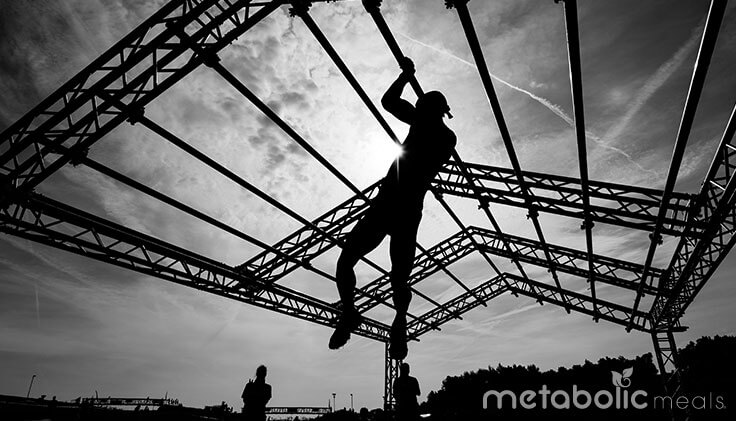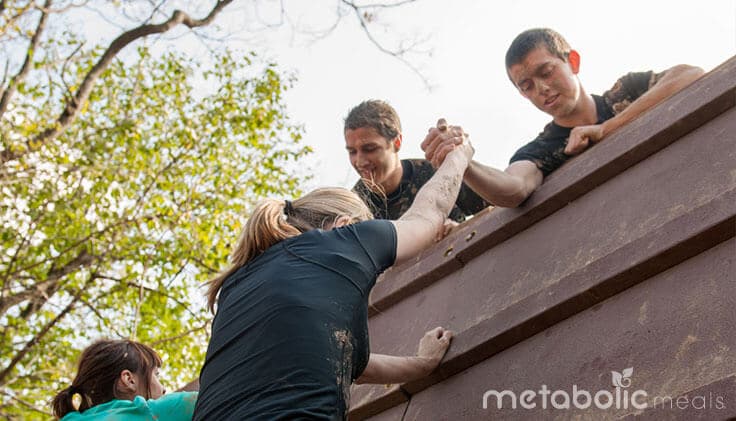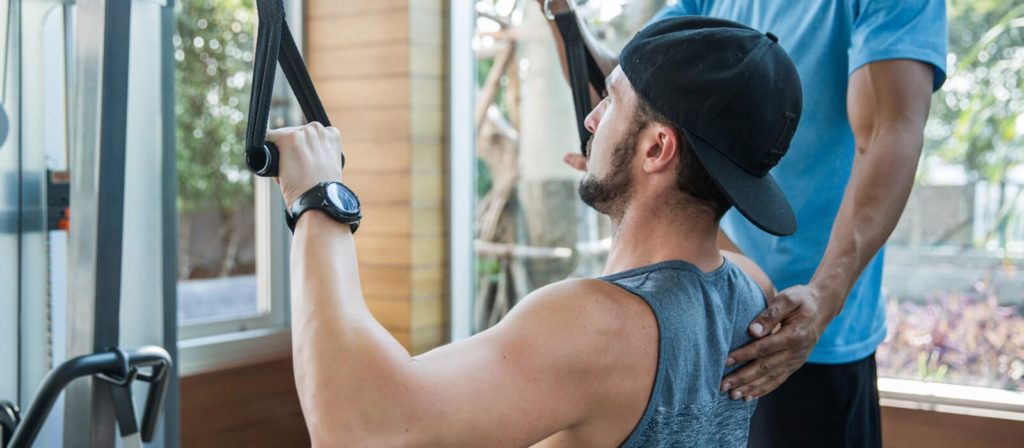ARTICLE AT A GLANCE
Obstacle racing is the one of the fastest-growing participant sports worldwide, and Spartan Race Inc. is the premier organizer of these races. These grueling races require runners to exhibit a well-rounded spectrum of athletic abilities, from stability, power, and strength to mobility, agility, and cardiovascular fitness. Spartan races are run in more than 50 countries and in a variety of terrains.
There are several types of races in the Spartan series designed for a wide range of ability levels. The Spartan Sprint, the original and most popular race, spans 3 to 5 miles of terrain and features as many as 25 obstacles. Beginners should start here. The Spartan Super can be as long as 10 miles and include as many as 30 obstacles. It’s quite a step up from the Spartan Sprint. Finally, the Spartan Beast pushes even the best athletes to their limits. At 12-plus miles and with more than 30 obstacles, even the most serious athletes will find the Beast a battle of mental and physical resiliency.
Regardless of your age and fitness level or the Spartan race you intend to run, it’s critical that you spend time and energy preparing for the challenges the Spartan Race Inc. team has prepared for you.
Preparing for the Race
The physical demands of a Spartan race are second to none. Each course includes multiple types of obstacles that require crawling, climbing, pulling, lifting, and running to conquer. For example, it includes barbed wire obstacles, rope climbs, and hoist lifts. Failure to complete any obstacle comes at a cost of 30 burpees. This wide spectrum of physical demands requires participants’ mobility and stability to transfer into efficient technical mechanics — bodyweight control and overall strength being significant priorities.

Spartan races aren’t to be taken lightly. Signing up to participate when you’ve done nothing to prepare but sit on the couch is a recipe for disaster. True preparation is key. Depending on your fitness level and general health, training for a Spartan race can take between six and 12 weeks. This time frame allows your body to adapt to the healthy diet necessary to fuel your body as well as the training strategies required to take on the challenge. Any less time preparing could make you susceptible to injury and, ultimately, failure.
As you gear up for your first Spartan race, nutrition will play one of the most critical roles in your preparation. As you train, your diet will have an immediate impact on your progress and your recovery. Plus, failing to plan your food intake ahead of the race could have devastating consequences on a day that requires complete dedication and focus. Being aware of proper food choices as well as meal timing and frequency is the first step to finishing the race.
Conquering the Course
The founders of Spartan races built their organization on the idea that the obstacles we face help change our frames of reference and, thus, our lives. The group promotes a sense of community to challenge participants’ minds, bodies, and spirits by trying something new, eating better and training harder, and developing the best versions of themselves. Excited to be part of this community? Give yourself the best chance at success by following these five steps:
1. Make a detailed plan.
Whether your preparation timetable is six weeks, 12 weeks, or somewhere in between, make sure you plan out each aspect of your day that’s race-related. From meal planning, strength training, and conditioning to sleeping and massage therapy, every detail should be accounted for. Ensure that your plans are strict enough that you’ll be ready for race day but flexible enough that you can reach your goals despite the hassles and distractions that everyday life includes.
2. Prioritize nutrition and hydration.

As mentioned above, nutrition is a crucial element of race preparation and success. Anything that fuels your ambitions needs to be one of your main priorities. When done right, shopping, preparing your food, and timing your meals around your busy schedule can pay amazing dividends on competition day. Worried that the hassle of daily life will get in the way of your goals? Try using a meal delivery service to guarantee you’ll get the right amount of high-quality fuel you need without extra effort on your part.
3. Focus on total-body strength and conditioning.

The demands of a Spartan race include many out-of-the-ordinary exercises and movements. That means your training requires a wide-ranging program that will prepare your body for all the demands of the course. I recommend training your body as a whole with total-, lower-, and upper-body conditioning combined during each session to accentuate training stress. You should also fully emphasize provided recovery days to give your body the opportunity to restore itself and regenerate.
4. Find an experienced partner.

Oftentimes, new participants run their first Spartan races with someone who has competed before. Working with a partner who can give you a firsthand account of the course’s difficulty is extremely valuable. Plus, being able to train with someone who can get dirty, run outside, and practice lifting and carrying with you is a huge advantage. This sense of community is also a big part of the Spartan organization’s worldwide popularity.
5. Visualize your perfect race day.
The final step toward crossing the finish line once the hard work of training is done is to prepare for race day. Coordinate your travel arrangements and pack your bags with all the essentials, including proper race gear, footwear, snacks, and personal items. Finally, give yourself time to get into a calm, confident mindset as you mentally prepare for the race.
Whether your first Spartan race is a once-in-a-lifetime experience or just the first of many, if you’ve followed the steps outlined here, you’ll be able to calm any pre-race nerves with the knowledge that everything you’ve done up to race day is more than enough to overcome the challenge and complete the course. In my book, that’s certainly worth a few minutes of your time!
Jason Benguche is an assistant strength and conditioning coach for the Carolina Panthers.






